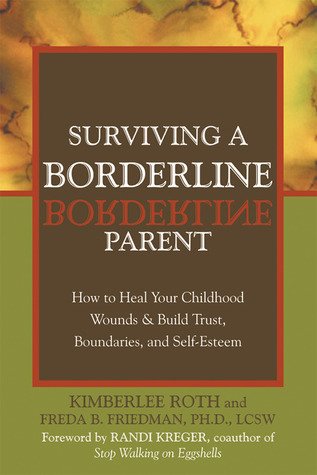Surviving a Borderline Parent: How to Heal Your Childhood Wounds and Build Trust, Boundaries, and Self-Esteem
Goodreads Douban
How to Heal Your Childhood Wounds and Build Trust, Boundaries, and Self-Esteem
Kimberlee Roth / Freda B. Friedman …
overview
Surviving a Borderline Parent is the first step-by-step guide for adult children of parents with borderline personality disorder. Between 6 and 10 million people in the US suffer from borderline personality disorder. This book teaches adult children how to overcome the devastating effects of growing up with a parent who suffers from BPD. Although relatively common, borderline personality disorder (BPD) is often overlooked or misdiagnosed by therapists and clinicians and denied by those who suffer from it. Symptoms of this problem include unpredictability, violence and uncontrollable anger, deep depression and self-abuse. Parents with BPD are often unable to provide for the basic physical and emotional needs of their children. In an ironic and painful role reversal, BPD parents can actually raise children to be their caretakers. They may burden even very young children with adult responsibilities. If you were raised by a BPD parent, your childhood was a volatile and painful time. This book, the first written specifically for children of borderline parents, offers step-by-step guidance to understanding and overcoming the lasting effects of being raised by a person suffering from this disorder. Discover specific coping strategies for dealing with issues common to children of borderline low self-esteem, lack of trust, guilt, and hypersensitivity. Make the major decision whether to confront your parent about his or her condition.


